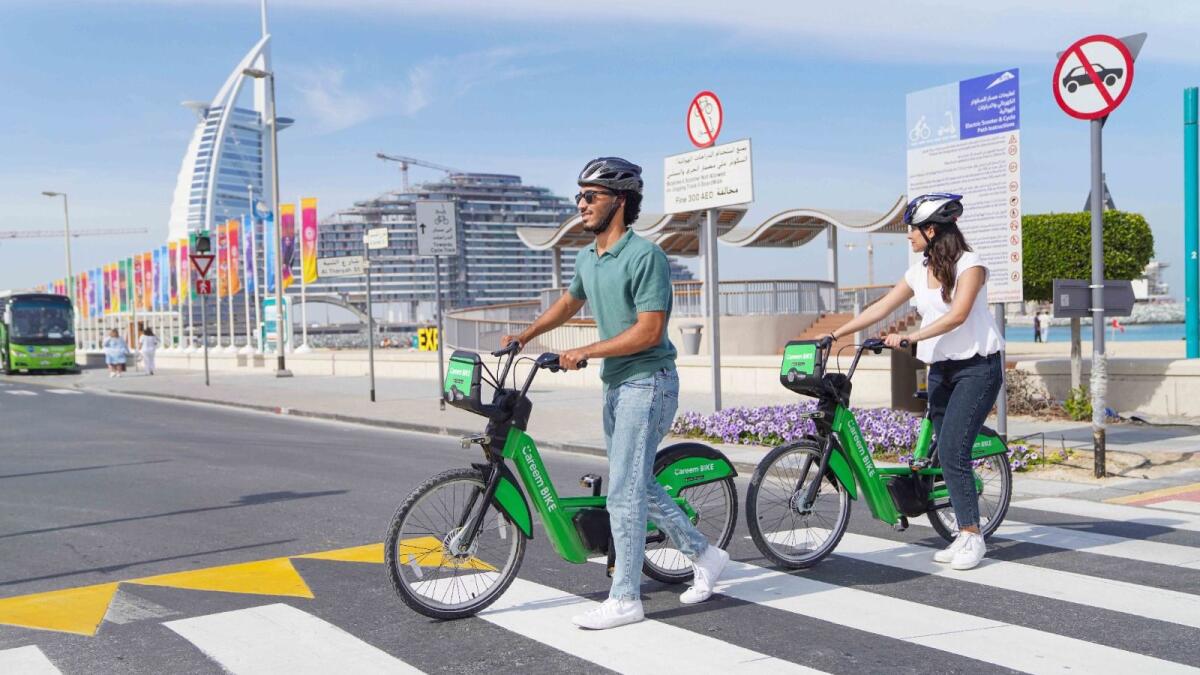
Dubai's Roads and Transport Authority (RTA) has launched a comprehensive monitoring platform to integrate bicycles, e-scooters and other non-motorised means of transportation under its Enterprise Command and Control Centre (EC3).
The initiative, which employs AI (artificial intelligence) technologies, will not only facilitate a smooth journey for commuters, but will also enhance traffic safety on crossing lanes designated for pedestrians and cyclists, the RTA said.
Hussain Al Banna, CEO of Strategy and Corporate Governance Sector at RTA, said: “This platform is a crucial initiative under the umbrella of RTA's EC3 aimed at enhancing the quality of services and smooth, safe, and secure mobility for users.
“It assists in the preparation of technical studies and promotes the integration of multiple mobility means. Ultimately, it leads to a seamless and integrated travel journey for public transport riders and ensures the safety and security of all users of Dubai's roads,” he added.
Al Banna explained: “The platform will contribute to improved performance and traffic safety on all crossing lanes and tracks designated for pedestrians and bikers by verifying compliance with the geographical zone and monitoring the numbers permitted in each zone. It also monitors compliance with the speed limits and issues alerts for violations.”
Initial phase
According to RTA, the soft mobility (non-motorised transportation, including bicycles and scooters) integrated platform links the systems of service providers to the EC3. The initial phase has linked five providers of soft mobility services, including four shared e-scooter operators and one shared e-bike operator.
“Over 2,500 e-scooters are operated across 21 regions (11 new areas were added in the first quarter of 2023). Shared e-scooters made more than one million trips in 2022. In addition, the 1,750 shared bikes provided in 28 areas across Dubai recorded over 1.3 million trips in 2022,” Al Banna said.
Cycling tracks across Dubai grew from just 9km in 2006 to 544 km in 2022, resulting in an increase in the average cycling lane-kilometre from 10.6 km to 14.45 km per 100,000 population between 2017 and 2022. There are plans to extend these lanes to 833 km by 2026.








